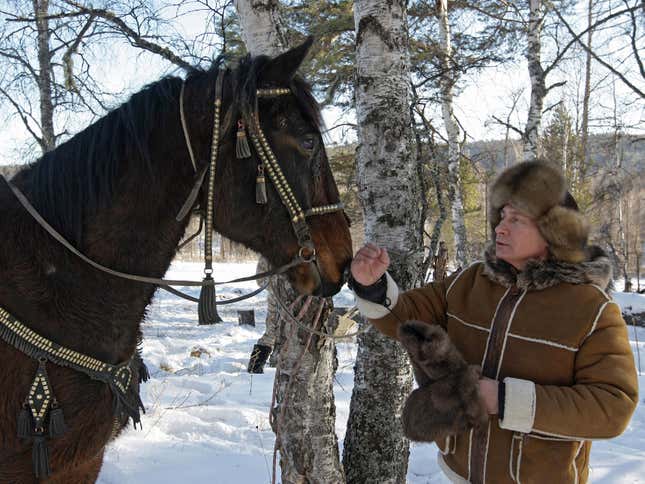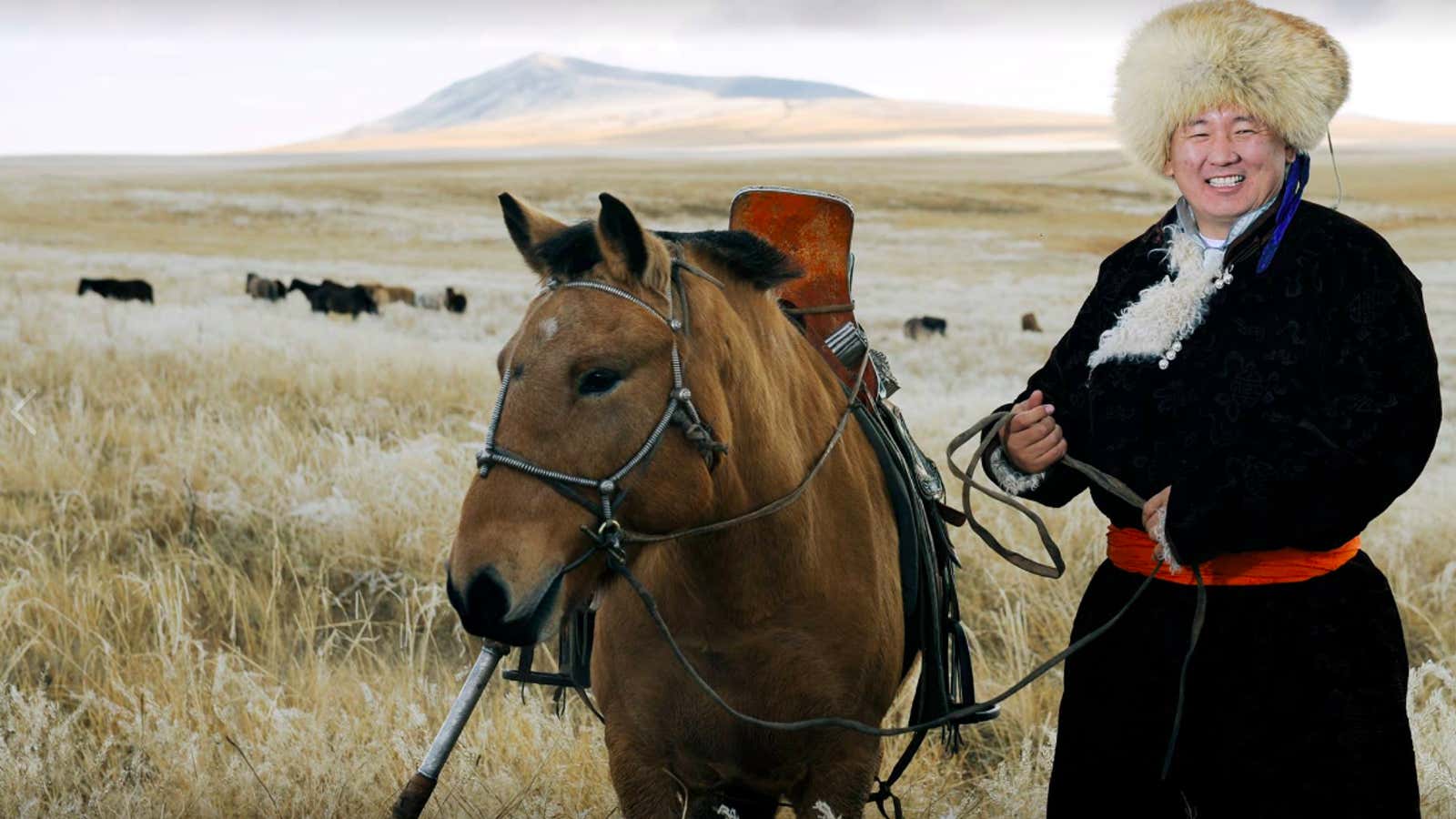His Facebook page shows him holding the reins of a horse against the rugged landscape of a Mongolian steppe. In 2012, he brawled with a fellow lawmaker, earning him the nickname “Fist.” He has a series of photos of himself in poses struck by Vladimir Putin. He’s the president of a local chapter of a Harley-Davidson fan club. Meet Ukhnaa Khurelsukh, shown above, Mongolia’s new prime minister.

A former colonel in the Mongolian army, Khurelsukh was selected last week by the ruling Mongolian People’s Party to head the government and preside over an all-new cabinet. His nomination was approved by Mongolia’s parliament on Wednesday. He replaces prime minister Jargaltulga Erdenebat who lost his job in September over allegations of graft.
In a speech on Oct. 4 (video), Khurelsukh pledged to fight corruption and urged people not to come at him with any requests for illegal favors.
The changing leadership of Mongolia, with its 3 million people and tiny indebted economy, may not appear to be a matter of great global import. And yet, as tensions with North Korea rise, it may well have a role to play thanks to its historic ties with Pyongyang. As a Soviet satellite, Mongolia was the second country to recognize North Korea. Columbia University Korean studies professor Charles Armstrong told the Guardian in 2013: “Mongolia has done a good job of portraying itself as an honest broker on Korean peninsula issues. It is probably the only country that both North and South Korea can be said to trust.”
In May, Julian Dierkes, a sociologist at Canada’s University of British Columbia who focuses on contemporary Mongolia had this to say:
Time and again, the Mongolian government has offered its services in brokering contact between the government in Pyongyang and the U.S. Over the years, there have been various meetings of this kind with U.S. or Japanese involvement and the general tenor always seems to be that North Korean participants in such meetings are generally comfortable in Ulaanbaatar which gives such meetings an advantage over attempts to meet in Beijing or Moscow, for example…
If, on the other hand, the situation becomes more confrontational, North Korean trust and comfort with Mongolian officials could be a lifeline – literally – in the event of some kind of crisis.
As Khurelsukh gets down to governing, he’ll also have to figure out how to get along with the Mongolian president, a former wrestler (paywall) who won elections in July and has veto power. Not to mention balance relations with China and Russia. Then there’s the economy. Earlier this year, the country secured IMF financing equivalent to half its $11 billion GDP after economic growth hit a wall—slowing from 17% to under 1% (paywall)—due to China’s slowdown and the fall in global commodity prices.
